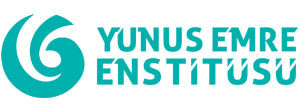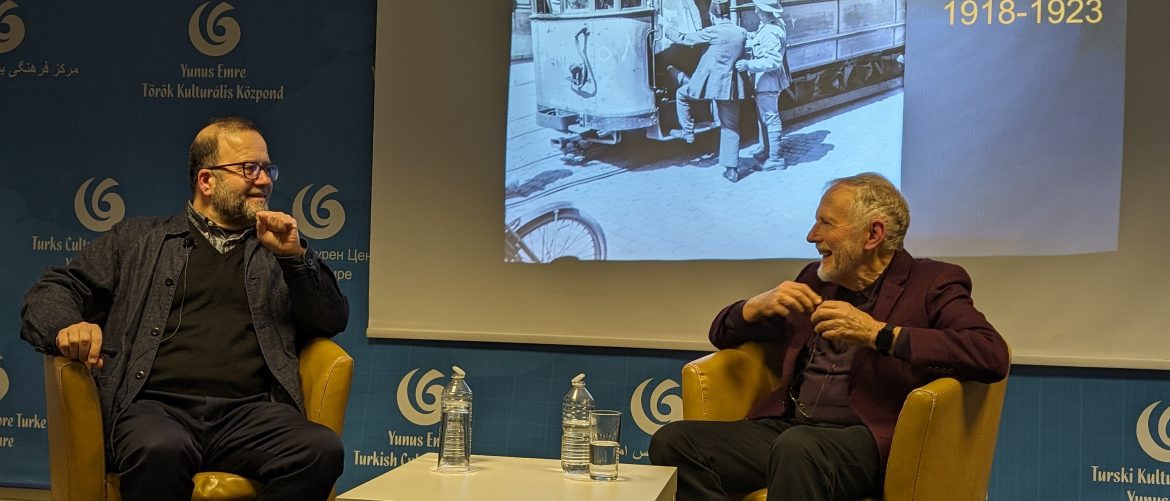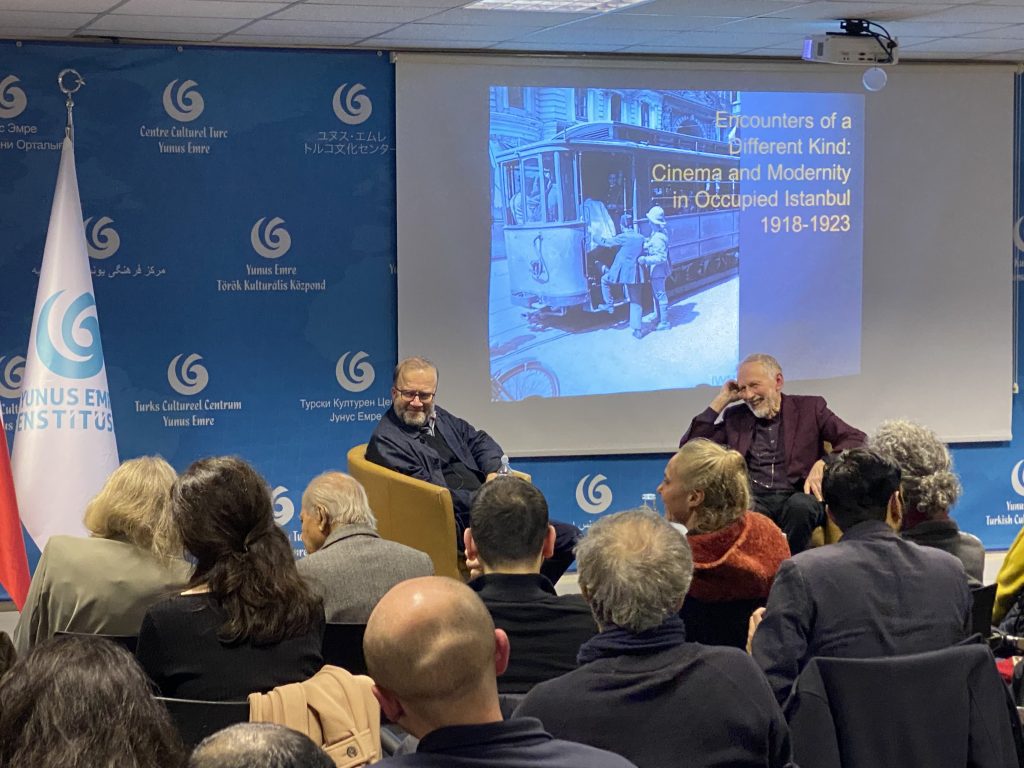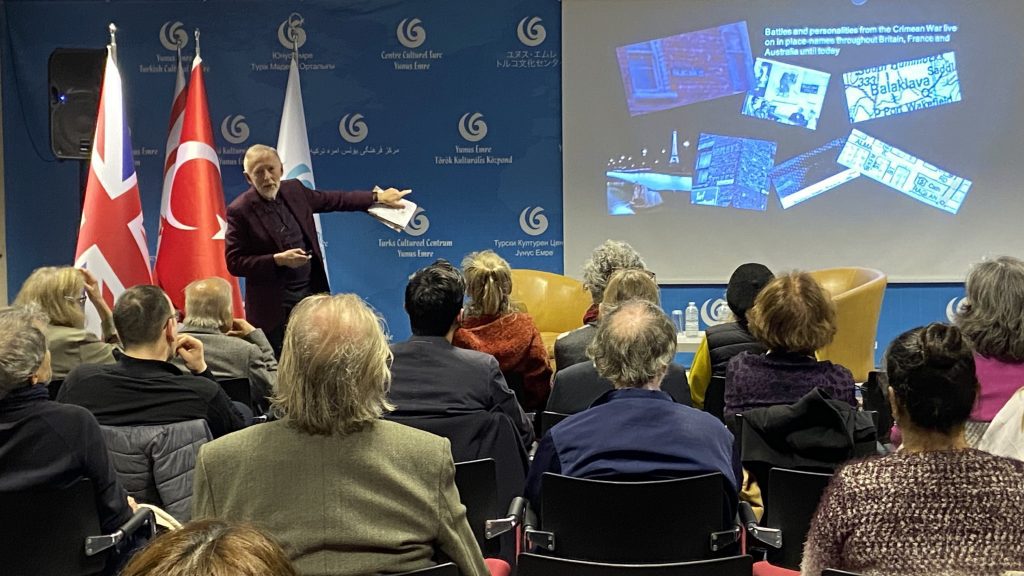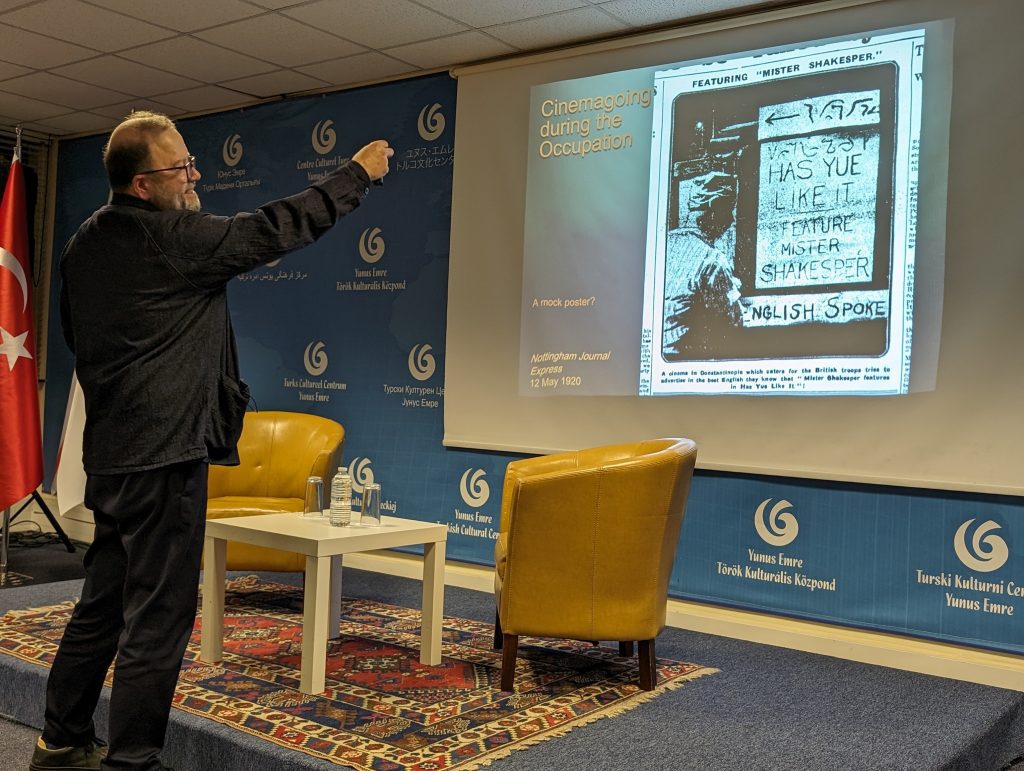As part of Yunus Emre Institute London’s long-running Arts & Culture Lecture Series, Friday 23rd February 2024 saw the presentation of a fascinating talk on Close Encounters of a Different Kind : Cinema and Modernity in Occupied Istanbul (1918-1923). The talk, taking place at Yunus Emre Institute London, explored the history and culture of Turkish cinema and featured preeminent film scholars Nezih Erdoğan and Ian Christie.
The talk toured the role of cinema as a medium of communication, education, and propaganda during the Occupation, and how it shaped the public opinion and the national identity of the Turkish people. The speakers analysed the cinematic representations of the Occupation, the resistance, and the liberation, and how they influenced the historical memory and the cultural identity of the Turkish nation.
The talk featured two eminent film scholars, Nezih Erdoğan and Ian Christie, who shared their insights and expertise on the film industry in Istanbul during the First World War and the Occupation, a period of political, social, and economic turmoil. They discussed how cinema not only survived but also thrived as a popular form of mass entertainment, and how it reflected and influenced the process of Türkiye’s “Westernisation” and the formation of the modern Turkish identity.
The evening began with Ian Christie’s whirlwind history of the development and evolution of Cinema. Ian Christie is a British film scholar and Professor of Film and Media History at Birkbeck, University of London with extensive experience at the British Film Institute, author of notable works on filmmakers and a regular contributor to Sight & Sound magazine. Christie showed how foreign films screened in Istanbul influenced Turkish cinema and how Turkish filmmakers drew inspiration from European cinema. Additionally, he emphasized the contributions of foreign filmmakers living and working in Istanbul during the occupation to Turkish cinema. Christie continued on to discuss where British and Turkish cinema history converged, focusing on the Gallipoli campaign which quickly saw commemoration on screens in both nations.
Following Christie, Nezih Erdoğan, discussed cinema and modernity in Occupied Istanbul. Nezih Erdoğan, Istanbul-based film scholar, teaches and researches Film Theory, History, and Storytelling at Istinye University, with notable contributions scholarly work on Turkish popular cinema and Early Cinema in Turkey, including co-editing “Shifting Landscapes: Film and Media in European Context” and “Exploring Past Images in a Digital Age: Reinventing the Archive.” Erdoğan emphasized the contributions of foreign filmmakers, such as Levant Cinematography Company and Cecil M. Hepworth, to Turkish cinema. He also discussed the evolution of cinema culture during the occupation period by drawing, for example the popularity of the Military Museum Cinema showcasing the most-watched films, screenings on warship for soldiers who would exchange films between the ships and the little-known relocation of the Pathé Russia Company to Istanbul. Erdoğan finished the talk by highlighted the importance of the National Cinema Program for the independence and development of Turkish cinema.
In the question-and-answer session moderated by Dr. Mehmet Karakuş, the director of Yunus Emre Institute London, the panelists and participants discussed topics including the effects of the occupation period on Turkish cinema, the national and international identity of Turkish cinema, the modernization process of Turkish cinema, and the future of Turkish cinema.
As was expressed by the two panelists, it was clear by the end, there a scholarly lacuna that needs further research within the rich heritage of Turkish cinema during the occupation period
